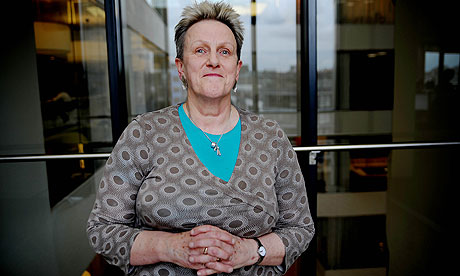
In all the brouhaha over recent book awards, one prize has gone largely unnoticed. The Mind Book of the Year award, now celebrating its 30th anniversary, is given for "writing that heightens understanding of mental health issues in all their forms". Previous winners include Hilary Mantel, Janice Galloway and Studs Terkel, and at a special lunch judges Blake Morrison, Michèle Roberts, and Fay Weldon will shortly announce this year's winner.
When the prize was inaugurated in 1981 the inner cities were rioting, unemployment was rising, and a Royal Wedding was announced. Plus ça change. But Mind has been instrumental in at least helping to change attitudes to mental health issues, and the book prize has been one way of achieving this. Before the 1980s it would have been unthinkable for a wife of the future king to admit to an eating disorder. Or for the closure of the Victorian mental asylums to be announced. Or for the Sun to take down its infamous headline, "Bonkers Bruno Locked Up".
There's still a long way to go. But between the prize's early years and now, what kinds of book have won the prize? And are there any books on this year's shortlist that could only have been published because of changes in attitudes to mental health?
I was struck by similarities between the first five winning books and the current shortlist. Memoirs such as The Art Of Starvation (1982) by Sheila MacLeod continue to feature. This account of anorexia, then a relatively unknown condition, finds an echo in this year's The Woman Who Thought Too Much, Joanne Limburg's account of OCD. An interesting pairing could also be made across the years between Edward Adamson's winner from 1985, Art As Healing, the story of Adamson's 30-year career as an art therapist, and The Gossamer Thread: My Life As A Psychotherapist by John Marzillier. Both chart developments in their respective fields (art therapy and psychotherapy) and both are fascinating accounts of practitioners trying to relieve suffering.
Self-help in the form of Depression: The Way Out Of Your Prison by Dorothy Rowe, made an early appearance in 1984, and again finds an echo in Tim Parks's memoir, Teach us to Sit Still: A Sceptic's Search for Health and Healing, a quest for help after the author's diagnosis with a prostate condition. In 1985 another powerful memoir, A Woman In Custody by Audrey Peckham, won the prize, underlining the strength of personal testimony in this field.
Perhaps the one book on the shortlist this year that reflects changes in society over the past 30 years is Diary Drawings: Mental Illness and Me by Bobby Baker. This is a collection of 158 drawings, a record of Baker's dealings with various mental health services in a fragmented, post-Community Care landscape, her battle with breast cancer, and her struggle to get the treatment she felt she needed.
This unusual artefact, at once a work influenced by Art Brut, by memoirs that have previously won the Mind award, and by ideas that go back to Adamson's Art As Healing, struck me as being both a radical departure for a book prize shortlist and at the same time the culmination of several strands in writing, thinking, and making art about mental health issues.
Perhaps, as the 30th award is made this afternoon, the time has come to salute all those who have won and been shortlisted for the prize, and last but not least, Mind as well.
John O'Donoghue's memoir Sectioned: A Life Interrupted (John Murray, 2009) was awarded Mind Book Of The Year in 2010.

